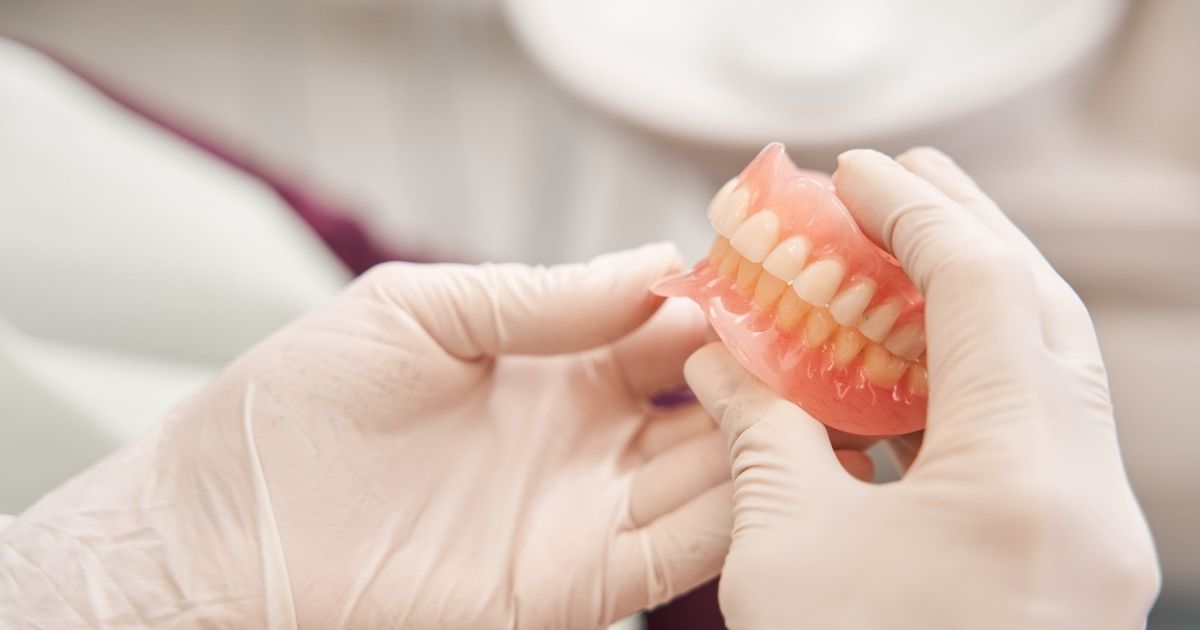Alternatives to dentures: What are they?
For many individuals facing tooth loss or dental issues, dentures have long been the go-to solution.
However, advancements in dental technology have introduced several effective alternatives that offer enhanced comfort, stability, and aesthetics. Let's dive into some of the modern alternatives to traditional dentures that are transforming smiles and improving lives.
Reading time: 3 minutes

Why do patients choose to stop wearing dentures?
There are several reasons why individuals may decide to stop wearing dentures, ranging from physical discomfort to emotional challenges.
Discomfort and fit Issues
One of the primary reasons people stop wearing dentures is due to discomfort. Ill-fitting dentures can cause significant irritation and soreness in the gums, leading to painful ulcers and general discomfort.
Additionally, as the jawbone and gum tissues change over time, dentures can become loose and unstable, exacerbating these issues and making them difficult to keep in place.
Difficulty in eating and speaking
Dentures can create challenges when it comes to eating and speaking. Many wearers find it difficult to chew certain foods, particularly hard or sticky items, leading to dietary restrictions and potential nutritional deficiencies.
Speaking can also be problematic; dentures may cause slurring or difficulty pronouncing certain words, which can be both frustrating and embarrassing.
Aesthetic concerns
The appearance of dentures is another significant concern. If dentures do not look natural or fit well, they can affect a person's confidence and self-esteem.
Feeling self-conscious about one's appearance while wearing dentures can lead individuals to stop using them altogether.
Maintenance and care
The maintenance and care required for dentures can be a deterrent. Regular cleaning and upkeep are necessary, which some people find cumbersome and time-consuming.
Moreover, dentures are fragile and can break if dropped or mishandled, adding the inconvenience and cost of repairs or replacements to the list of potential drawbacks.
Psychological and emotional factors
Adapting to dentures can be a significant psychological hurdle. Some individuals never fully adjust to the sensation of having a foreign object in their mouth, leading to a persistent feeling of discomfort.
Additionally, wearing dentures can impact a person’s self-image and sense of youthfulness, causing reluctance or refusal to wear them.
Health and medical issues
Health and medical issues also play a role in the decision to stop wearing dentures. Some individuals may experience allergic reactions to the materials used in dentures, although this is rare.
Changes in oral health, such as severe gum disease or significant bone loss, can also affect the fit and comfort of dentures, prompting individuals to seek alternatives.
Exploring alternatives to dentures
There are several alternatives to dentures, all of which have pros and cons which need to be considered when making a decision. It´s important to take into consideration the main lifestyle & maintenance elements when making a decision.
We review the most common alternatives below:
Dental implants
Dental implants are a popular and effective alternative to dentures. They serve as artificial tooth roots, typically made from titanium, which are surgically placed into the jawbone. Over time, the implants fuse with the bone, providing a stable foundation for replacement teeth.
This option not only looks and feels more natural but also preserves jawbone and facial structure.
Pros:
- Long-lasting and durable.
- Look and function like natural teeth.
- Prevent bone loss in the jaw.
Cons:
- Requires surgery and a lengthy healing process.
- Higher upfront cost compared to dentures.
Considerations:
- Bone density: An adequate jawbone is essential for the implant to be successful.
- Overall health: Patients must be in good health to undergo surgery.
- Budget: While costly initially, they may save money in the long run due to their durability.
Implant-supported overdentures
Unlike traditional dentures, which rest on the gums, implant-supported overdentures offer a significant improvement in treating complete tooth loss, especially in the lower jaw, by enhancing oral function and quality of life.
Anchored by osseointegrated implants, these prostheses provide better stability and retention than traditional dentures. They are particularly beneficial in improving patient satisfaction and oral health-related quality of life, addressing both functional shortcomings and psychosocial limitations associated with conventional removable dentures.
Pros:
- Improved stability compared to regular dentures.
- Preserves jawbone health when supported by implants.
- Removable for easy cleaning.
Cons:
- Requires dental implants or healthy teeth for support.
- More expensive than traditional dentures.
Considerations:
- Support structure: Need for implants or healthy teeth for anchoring.
- Maintenance: Requires regular care and professional check-ups.
Fixed bridges
A fixed bridge is another alternative. Bridges are made from crowns for the teeth on either side of the gap, with false teeth in between. Unlike removable dentures, fixed bridges are cemented onto existing teeth or implants and can only be removed by a dentist.
Fixed bridges not only help restore the dental arch and improve chewing and speaking functions but also prevent the remaining teeth from shifting, maintaining the integrity of the patient's bite. They are a durable option, designed to blend seamlessly with the natural teeth, enhancing the overall smile and confidence of the patient.
Pros:
- Permanently fixed in place.
- Offers good aesthetics and function.
- Less invasive than implants.
Cons:
- Requires alteration of adjacent healthy teeth.
- May need replacement after several years.
Considerations:
- Oral hygiene: Bridges require diligent cleaning to prevent decay of supporting teeth.
- Adjacent teeth: Must be healthy enough to support the bridge.
Removable partial dentures
These are removable dental appliances that replace a few missing teeth and are supported by the remaining natural teeth and gums.
Pros:
- Less expensive than implants or fixed bridges.
- Non-invasive procedure.
- Easy to adjust and replace.
Cons:
- Less stable than fixed options.
- Can be uncomfortable and may affect speech and eating.
Considerations:
- Maintenance: Regular cleaning and adjustments are necessary.
- Stability: May need periodic adjustments to ensure a good fit.
There are various retention systems and concepts are available, each designed to meet different patient needs and preferences. This type of denture setup not only boosts comfort but also contributes positively to the patient's quality of life by offering a more natural feel and function compared to conventional dentures.

Factors to consider when choosing an alternative to dentures
As previously discussed, there are multiple pros and cons to each option available, however, there are also some other factors to consider when trying to decide which option to go forward with.
We have broken down the main 5 factors below:
Oral health:
- Evaluate the health of your remaining teeth and gums.
- Consider bone density for options like implants.
Budget:
- Determine your budget for both initial and long-term costs.
- Weigh the upfront costs against potential future savings.
Aesthetics and functionality:
- Consider how natural the alternative looks and feels.
- Assess the impact on speech and eating.
Invasiveness:
- Determine your comfort level with surgical procedures.
- Consider recovery times and potential complications.
Maintenance:
- Evaluate the required care and maintenance for each option.
- Consider your ability and willingness to maintain oral hygiene.
By carefully weighing these factors, you can make an informed decision about the best alternative to dentures for your specific situation.
Conclusion
The choice between these alternatives will depend on various factors, including the patient's dental health, budget, and personal preferences.
Each option offers its own set of advantages and considerations, making it crucial to consult with a dental professional who can provide a thorough diagnosis and recommend the best solution tailored to individual needs.